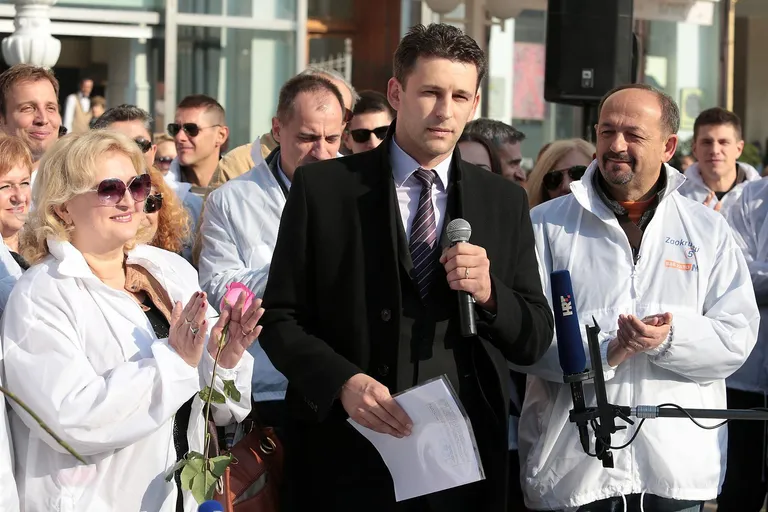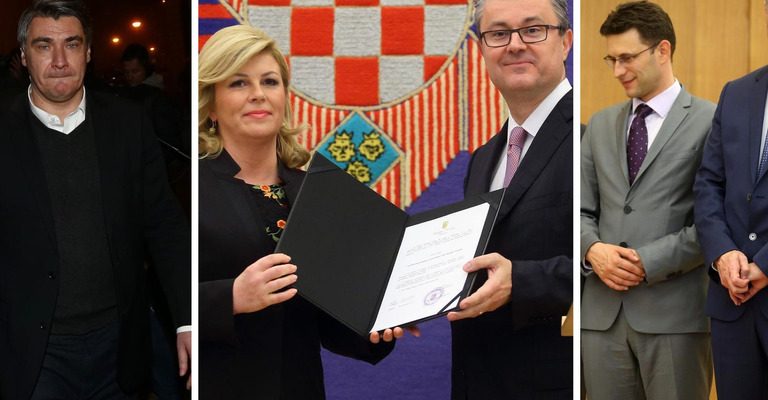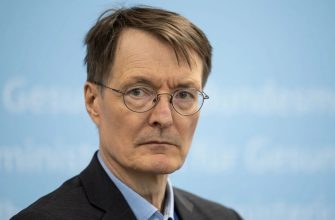“Hello, Plenković, what ministries do you offer? Peđa, shall we negotiate with you or shall we overthrow Milanović?” – the phone lines of politicians are hot these days because everyone now wants to join the government, have the main say in the post-election trade, or at least be loud enough for the other side to understand that neither the prime minister’s chair nor the minister’s salary is safe for them without them.
And the citizens had their say. And almost 70 percent of all those who had the right to vote. They have circled their favorites or those they believe are not like those they can’t even see drawn. So the parliamentary results would be like that of choice could be final as early as this Wednesday, and at the latest on April 30 due to repeated voting in two constituencies, after which the race begins with time, deadlines for forming the government and those magical 20 days, the longest one can wait until the first constitutive session of the Parliament.
“How to get 76 hands?” is a question that both the left and the right are asking themselves at the moment. The greatest pressure is on Homeland movement who as the third option won 14 mandates and it is certain that he holds the key to forming a new government. They are voters HDZ and partners rewarded with 61 mandates, which, regardless of the relative victory, is not enough for the majority, nor SDP’s Rivers of justice with 42 mandates. And those “smaller players”, who could certainly play a big role, like Daria Zurovac from Focus, have already raised their bar. The entire equation also mentions the anti-HDZ coalition, and we should not forget the controversies surrounding the interpretation of the Constitution and the role of the president. Zoran Milanović who wants to be prime minister, but he is not even allowed to resign, and there are also rumors about possible chips with which the whole story could be further complicated.
Does such a scenario remind you of something?
Even after the parliamentary elections in 2015, a real drama took place. The biggest post-election saga in Croatian history ended after marathon one-month negotiations with the reversal of all reversals and the coalition of HDZ’s Patriotic Coalition and The bridge and the government with the first non-party prime minister Tihomir Orešković.
Chronology of the biggest post-election saga in Croatia
That year, in the elections, the main fight was between HDZ’s Patriotic Coalition of the center-right, headed by Tomislav Karamarko which was the relative winner of the election with 59 mandates, and the left-liberal SDP coalition Croatia is growing, headed by Zoran Milanović, who blew down their necks with 56 mandates, while the absolute surprise was Most with 19 mandates, who ruled in whose hands go the keys of Banski dvor.
Later coalition negotiations were marked by various maneuvers and turns by Most, who entered into a “political marriage” with the HDZ. And in 2015, similar to now, the spotlight was on a third party that had to decide whether to go with these or those, and from a country with 4 million voters we turned into a country with the same number of constitutional experts who watched the moves of the then president under a magnifying glass Kolinda Grabar Kitarović.
Before the election, Most swore that a coalition with neither the HDZ nor the SDP would come into consideration. Bozo Petrov he even notarized his statement that after the election the party would start negotiations with both coalitions for which it had set conditions, insisting on a tripartite government and a non-party prime minister.

Photo: Patrik Macek/PIXSELL

Photo: Patrik Macek/PIXSELL
In a month of negotiations, Most changed their opinions, conditions and program, and due to numerous twists and turns, the formation of the government resembled a bad soap opera with countless sequels or a game of Vatreni that cannot possibly end without overtime and penalties.
And the two Wednesdays after those elections played an important role. On November 11, Most held talks with both coalitions and said that he was looking for the formation of a so-called government of national unity in which both HDZ and SDP would be, claiming that anything else would be a voter fraud. They were recorded in a secret meeting that same evening Dear Prgometat that time, along with Petrov, one of the most prominent members of Most, and outgoing Prime Minister Zoran Milanović in the apartment “without curtains” of the then minister Ante Kotromanović. The news went off like a bomb, which is why party colleagues called Prgomet a traitor and he was quickly expelled from the party, and some even claimed that it was all “SDP’s preparation”. He, on the other hand, excused himself for not blowing up the Bridge and joked that he would buy Kotromanović curtains for Christmas.

Photo: PIXSELL

Photo: PIXSELL
Milanović called possible partners from Most thieves, so he sent them letters in which he renounced the position of prime minister and opened the door to a coalition with everyone. Karamarko spiced up the story by saying that he could not sign the conditions of Most, rejecting the tripartite government, which is why Petrov said that the door to the Patriotic Coalition was closed. And then the biggest twist happened in the photo finish of the negotiations.
A reversal in the photo finish of the negotiations
When it seemed that an agreement between the SDP coalition and Most was getting closer, a visibly upset Petrov announced that they had abandoned the negotiations because, as they claimed, of the recruitment of certain representatives of Most from that coalition at a time when the two parties were already negotiated the composition of the parliamentary majority and the Government. On the same evening, Petrov and Karamarko appeared at Pantovčak with 78 signatures, after which they embarked on their “political marriage”.

Photo: Hrvoje Jelavic/PIXSELL

Photo: Hrvoje Jelavic/PIXSELL
Political scientist Vojko Rešetar in his Analysis of the negotiation process for forming the government after the 2015 elections. points out that the election results exposed Most as insufficiently ready to quickly define its platform. According to the political scientist, the main obstacle to the credible, decisive and quick determination of Most to establish a coalition with one or another bloc was Most itself.
“Most’s irritating and dramatic negotiation salto mortale combining and varying was to a considerable extent an expression of his contradictory position, which fundamentally stemmed from an internal reason and under the pressure of the necessary external imperative of the final formation of a coalition or new elections. (…) Most constantly and arbitrarily changed his political-negotiation positions and at the same time persistently avoided commenting on a number of relevant social issues and at the same time very quickly forgot his claim that he would support the negotiating party that accepts the advocated reforms,” says Rešetar.
So, according to political scientists, the negotiations had more the characteristics of bluffing, “fiscal outwitting and outmaneuvering”, than a serious approach based on a transparent and programmatically coherent negotiation platform.
And while the attention was focused on Most, the moves of the then president Kolinda Grabar Kitarović, who held five rounds of consultations, were also followed. At the same time, there were various interpretations and open questions on which neither politicians nor experts could agree.
The role of Kolinda Grabar Kitarović
On November 26, Grabar Kitarović started consultations with representatives of parliamentary parties, which showed that no one has an absolute majority of mandates. The Croatia is growing coalition had 66 signatures of support, the Patriotic coalition did not want to reveal the number, but claimed to have more than 59 mandates won in the elections.
According to Rešetar, two moments in the consultations strengthened the doubt about the transparency and impartial way of their implementation with the president. Kolinda Grabar Kitarović then unilaterally received in the consultation Mirko Raškovićwithout the knowledge of his former SDSS party, after he had conducted consultations on behalf of that party Milorad Pupovac. She also had a special conversation with Boža Petrova after the official conversation with the representatives of Most, which the public later found out.

Photo: Marko Prpic/PIXSELL

Photo: Marko Prpic/PIXSELL
The second round of consultations started on December 7, and the president previously convened the constituent session of the Parliament for December 3, believing that there was no need to delay, which was before the final constitutional deadline that expired on December 13. At the same time, it was clear that no one has a parliamentary majority and that the coalition negotiations have not been completed. At that session, the Parliament was not constituted nor did it elect its president because there was no parliamentary majority to do so. Questions arose as to whether the continuation of that session or a new constituent session is being convened, and whether the President of the Republic or the President of the Parliament from the previous session is calling the representatives to the new session.
The third round of consultations on December 14 was preceded by a meeting of the president with professors of constitutional law, as the public discussed different interpretations of what she should do and what her constitutional powers are. Some believed that a mandate should be appointed regardless of insufficient parliamentary support, others that the mandate should be given to the relative winner of the election, and some that new elections should be called and a non-party government appointed.
Even that round of consultations did not produce a solution to the post-election puzzle, which is why a fourth round of consultations was announced for December 22, when it was expected that Most would form a government with the SDP coalition, given that Milanović and Petrov publicly claimed that they were on the verge agreement.

Photo: Zeljko Lukunic/PIXSELLr

Photo: Zeljko Lukunic/PIXSELLr
The turnaround happened on December 22. Petrov met with the president at Pantovčak, after which he was visibly upset and shocked when he announced that the negotiations with the SDP coalition were falling through, which he only informed Milanović via text message. Although it has not been officially confirmed what the president said to Petrov at that moment, Factographer wrote, referring to Jutarnji List’s knowledge, that she showed him a video that proves that several representatives of Most secretly met with Milanović in Banski dvori. The president’s office denied this.
The ‘unlucky’ 13th government
That same evening, Karamarko and Petrov arrived at Pantovčak with 78 signatures and asked Grabar Kitarović for another 24 hours to agree on the mandate. On Wednesday, December 23, 2015, the then president entrusted the mandate to form the government to Tihomir Orešković, the first Croatian non-party prime minister, ending the arduous tapestry of forming the government.

Photo: Jurica Galoic/PIXSELL

Photo: Jurica Galoic/PIXSELL
It is interesting that there were rumors at the time, and it was confirmed years later, that the president was thinking about forming a temporary non-partisan government and had ready the names of the people who were supposed to lead the country until new elections in case the government was not formed then.
Tihomir Orešković was a businessman who assumed one of the most important positions in the country and was remembered as the prime minister with the shortest term and bad Croatian. IN Croatia came as a returnee from Canada, and in addition to his lack of experience in politics, he was blamed for his poor command of the Croatian language, so it is still remembered today when he called Croatian citizens “buildings” in his first speech.
Orešković’s 13th government arrived in Banske dvore on January 22 and proved to be “unfortunate”. She lasted less than nine months, of which four months were technical. During his short mandate, there followed an unprecedented crisis of government and several months of tensions between the Patriotic Coalition and Most. It also went down in history as the government with the shortest ministerial tenure, that of the Minister of Defense Mije Crnoje who resigned after only six days because he provided a false residential address on his CV. In June 2016, the Parliament voted no-confidence against Orešković. Everything culminated in the overthrow of the government and early parliamentary elections in September of the same year, in which HDZ is headed by Andrej Plenković formed a new government.
Less than nine years later, all eyes are on another uncertain post-election chess game. Whether it will be as dramatic as it was then, we will find out. As well as whether the negotiators have learned anything – for example, to draw the curtains.
PWATCH THE VIDEO: While Penava says that ‘marriage’ with HDZ does not cross his mind, Plenković on collaborations: ‘What are you ashamed of?’







